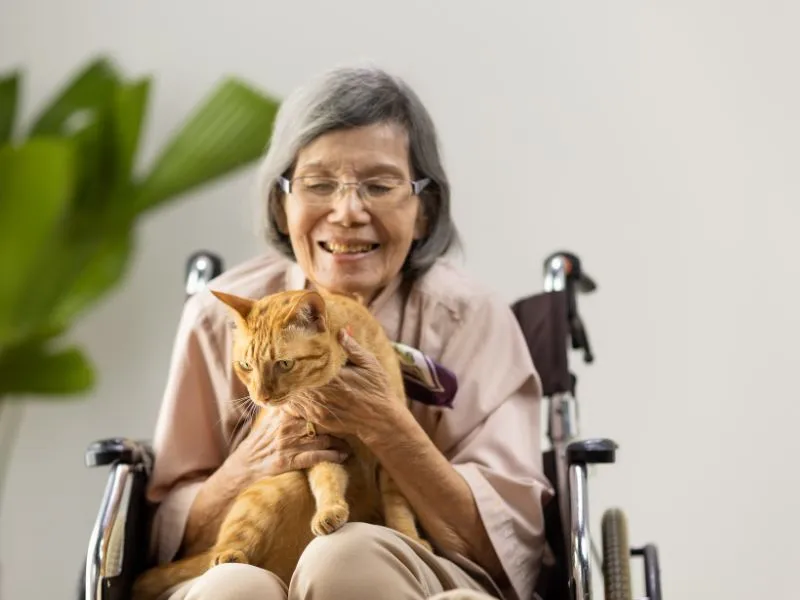In an increasingly fast-paced and often stressful world, finding solace and support can be challenging. Yet, for millions of people, the answer lies not in therapy sessions or medication alone, but in the unconditional love and companionship of their pets. Far from mere furry (or feathered, or scaled!) friends, pets have a transformative impact on mental well-being, offering emotional support, reducing stress, and fostering a sense of purpose.
The Power of the Pawsitive:
The science is clear: pet ownership boasts a multitude of benefits for mental health. Studies have shown that interacting with pets can lower blood pressure, reduce stress hormones like cortisol, and boost the production of feel-good brain chemicals like oxytocin and serotonin. This translates into a calmer, happier, and more relaxed state of mind.
Beyond the physiological, pets offer a unique form of emotional support. They provide unconditional love and acceptance, something especially crucial for those struggling with loneliness, anxiety, or depression. Their presence can be a source of comfort, reducing feelings of isolation and providing a sense of security and belonging.
For individuals facing trauma or mental illness, pets can act as powerful allies in the healing process. Therapy animals, for instance, can provide a calming presence during difficult moments, offer non-judgmental companionship, and encourage social interaction.
More Than Just Walks in the Park:
The responsibilities of pet ownership also foster a sense of routine and purpose, particularly valuable for those struggling with mental health challenges. Caring for a pet can provide structure and motivation, encouraging engagement in activities like regular walks, feeding schedules, and playtime. This can be especially helpful for individuals with depression, anxiety, or social isolation.
Furthermore, pets can be catalysts for social interaction. Walking a dog, for instance, can lead to conversations with fellow pet owners, fostering a sense of community and belonging. This is particularly beneficial for those who might struggle with social anxiety or loneliness.
Exploring the Bond:
The connection between humans and animals is ancient and profound. Caring for a pet can nurture empathy, responsibility, and compassion, qualities crucial for healthy emotional development and social interaction. This bond can be especially valuable for children, teaching them valuable lessons about love, loss, and responsibility.
While pet ownership comes with its own set of responsibilities, the benefits it offers to mental well-being are undeniable. From reducing stress and anxiety to providing companionship and fostering a sense of purpose, pets can be invaluable allies in navigating the challenges of life.
So, if you're considering welcoming a pet into your life, know that you're inviting a potential source of joy, comfort, and support for your mental well-being. The rewards of this special bond can be truly transformative, reminding us of the healing power of connection and the unconditional love that can exist between humans and animals.
Colclusion
At Solh, we deeply value mental health and understand the pivotal role of compassion in the overall well-being. That's why we've carefully assembled a suite of empowering Self-help tools and Community Support tailored to nurture your mental health. Our curated offerings encompass a diverse array of resources, from journaling, support groups to Solh Buddy, allowing you to share your experiences,seek support, offer guidance and connect with others - anonymously or as yourselves. Take control of your path towards enhanced mental well-being by exploring and utilizing our comprehensive resources at Solh!








